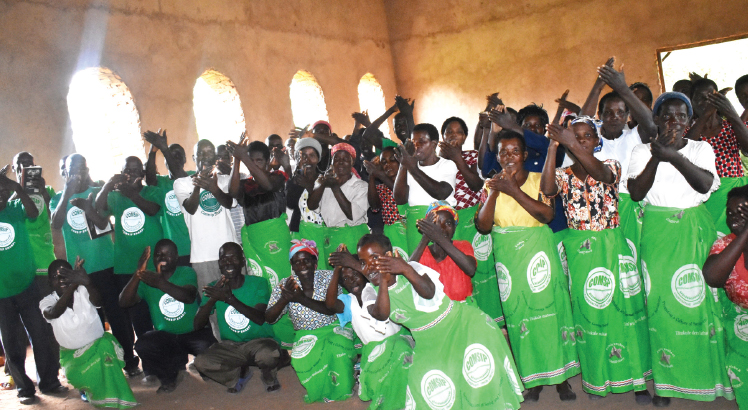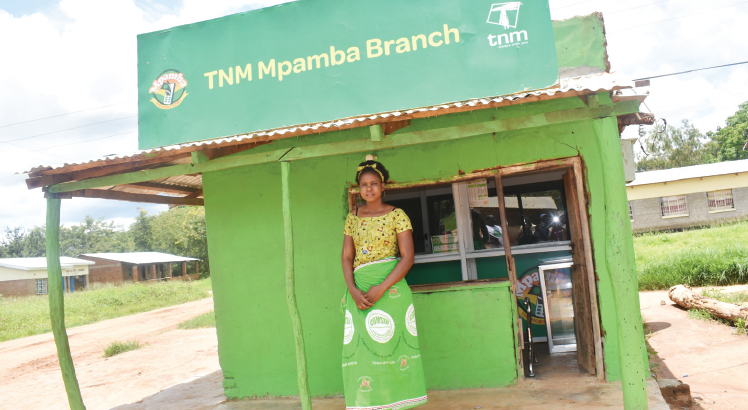Comsip transforms lives through livelihood project
From Kapambwatu Village, Traditional Authority Mwirang’ombe in Karonga, 72-year-old Idah Gondwe is a proud owner of 57 chickens, four pigs and six goats.
For an elderly woman living in a rural area, this is not a mean inventory to own.
Gondwe is a beneficiary of Malawi Government’s social cash transfer programme, which opened her doors to the Livelihood Support Programme which Comsip Cooperative Union Limited is implementing under the Social Support for Resilient Livelihoods Project (SSRLP).
“When I started getting the cash transfers, I did not know how best to use the money to sustain my livelihood. I used to live a hand-to-mouth life,” explains Gondwe.
“I found myself regularly knocking on my neighbours’ doors asking for small things like salt, even though I was on social cash transfer programme.”

It wasn’t until Gondwe attended a Comsip sensitisation meeting on livelihood support under the SSRLP that her mind opened up to new ideas of growing the funds she gets through cash transfers.
Following the sensitisation, Gondwe joined Muswero Savings and Loan Group which was formed in 2021. She started saving part of her social cash transfers. She gets K11 000 a month.
The woman bought some shares and later started borrowing from the group to invest in small-scale businesses. She started buying and selling rice and beans.
“It is from the proceeds of these small-scale businesses that I have managed to acquire the livestock and as I speak to you, I am now building a new house whose iron sheets I have already bought,” explains Gondwe.
In Rumphi, 26-year-old Leah Mkandawire shares an equally interesting story of how she graduated from a mere mandasi (flitters) seller to a TNM mobile money branch manager at Kamphenda Trading Centre.
Mkandawire hails from Chinombo Village in Paramount Chief Chikulamayembe’s area. She is a mother of twoand got married at the age of 16 due to poverty.
“My parents could not afford my tuition fees and I could not continue with my secondary education. I had to drop out of school and got married,” she says.
Despite being married, Mkandawire’s poverty worsened. She could not afford even basic necessities.

Her household was registered on the beneficiary list of the social cash transfer programme in 2018. That was the beginning of Mkandawire’s journey to prosperity.
She initially received K38 000 covering two months of social cash transfer from which she took K5 000 and invested it in mandasi (flitters) business.
Meanwhile, plying her business at the trading centre, Mkandawire had noticed the demand for mobile money transfer services. She seized the opportunity and started offering the services using ordinary sim cards for both Airtel Malawi plc and TNM plc networks.
She formally registered herself with the mobile money service providers TNM plc and Airtel Malawi plc to ply her business as a formal agent at Kamphenda Trading Centre.
However, she narrates that her lack of business management skills impeded the growth of her business.
“I could not ably calculate the profits I was making, record-keeping was a major problem of my business because I lacked training in financial literacy and business management.
“This made me join Chatowa Cluster which Comsip formed in my area under the SSRLP. I have since benefited from the trainings in financial literacy and business management.”
But that was just the beginning of it all. Mkandawire was yet to get another elevation.
“Early this year, TNM plc came again to evaluate my premises and they promoted my business from a kiosk to a full branch,” she explains.
She says through the trainings and profits incurred, she has diversified her business.
Apart from running the mobile money business, Mkandawire is also into farming.
She grows tobacco, ground nuts, soya beans and maize.
Gondwe and Mkandawire are just examples of how people have benefitted in the districts where Comsip Cooperative Union Limited is implementing the livelihoods component of a five-year Malawi Government project called SSRLP, which is funded by the World Bank.
SSRLP’s life span is up to 2024 and the livelihood component that Comsip is implementing is valued at $20 million (about K20 billion), targeting 70 000 beneficiaries in selected districts. The component is aimed at providing an economic inclusion package to Social Cash Transfer and Climate Smart Public Works Programme beneficiaries.
SSRLP supports the Malawi National Social Support Programme II in its strategy and implementation plan in 14 districts of Chitipa, Karonga, Rumphi, Nkhata Bay, Nkhotakota, Kasungu, Dowa, Ntchisi, Lilongwe, Dedza, Balaka, Blantyre, Chiradzulu and Phalombe districts.
According to Comsip Cooperative Union Limited chief executive officer Tenneson Gondwe, the project’s development objective is to improve resilience among the poor and vulnerable population and to strengthen the national platform for safety nets in the country.
The SSRLP has three packages, namely basic livelihoods, enhanced livelihoods and pilot graduation.
Basic livelihoods package focuses on mindset change trainings on group formation and savings mobilisation, management, financial literacy, nutrition and health, gender, environmental and social safeguards and community-based disaster risk awareness, according to Gondwe.
This is also the phase where beneficiaries are trained to use group savings and loans to venture into individual and group businesses to grow their money.
He further explains that the livelihoods package targets 70 000 beneficiaries: 55 000 from the SCT and 15 000 from the CSPWP.
On the other hand, enhanced livelihoods package targets 59 000 beneficiary households, focusing on formation of joint skills groups, youth skills challenge support group, value chains support cooperative development and management service linkages.
The third package, graduation pilot, targets to graduate 8 400 SCT and CSPWP beneficiaries out of extreme poverty during the five years through a comprehensive ultra-poor graduation process.
Halfway down the project’s life span, the SSRLP has registered tremendous strides with thousands of SLGs formed and beneficiaries changing their mindsets.
“As at March 31 2022, a total of 2 592 SLGs had been formed with a total of 47 090 beneficiaries with females accounting for 69 percent and males 31 percent,” explains Gondwe.
He adds: “So far, a total of K442 million in savings has been mobilised from the beneficiaries’ consumption support and this is on lend in the groups for investment.”
According to Gondwe, other notable achievements are that 24 742 beneficiaries have been trained on disaster risk awareness and environmental and social safeguards under the basic livelihoods package, while under the enhanced livelihoods package, 588 joint skills groups have been formed with a total membership of 8 788.
The project has also identified 1 140 youths for business concept development towards vocational skills training, and 627 community facilitators have been trained as local animators to assist in the implementation of the activities of the project including trainings on mindset change topics.
Comsip has also identified 3 000 beneficiaries for asset transfers under the first phase of the graduation pilot
Among the graduating women could be the 72-year-old Idah Gondwe from Karonga and the 26-year-old Leah Mkandawire, former mandasi seller but now branch manager for TNM mobile money transfer services at Kamphenda Trading Centre in Rumphi.
“It has been an exciting journey and I owe it all to the savings culture that Comsip inculcated in us.
“Through the organization’s trainings my economic status has extremely improved and today I can proudly say I am an economically independent woman,” explains Lea, a mother of two.
On the other hand, Gondwe’s says Comsip trainings are even more exciting.n





